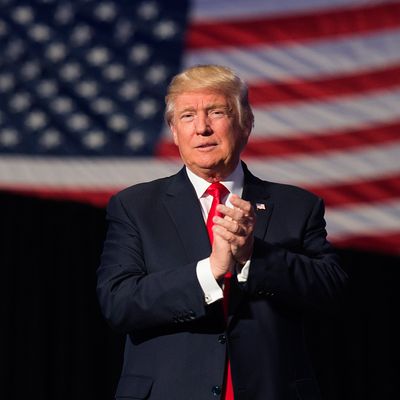
Typically, president-elects don’t conduct negotiations with military contractors until they’ve actually been sworn in as commander-in-chief. And then, they typically do not hold said negotiations over Twitter.
But, of course, Donald Trump is not a typical president-elect. Earlier this month, Trump set Boeing’s stock spiraling downward by “canceling” its (nonexistent) $4 billion contract to build the new Air Force One.
Then, he did the same for Lockheed Martin’s share price, by suggesting he intended to cancel the F-35 program that the company supplies.
This week, Trump met with the CEOs of both firms, and extracted a promise from Boeing’s Dennis Muilenburg that the new Air Force One would cost less than $4 billion. Lockheed’s Marillyn Hewson chose not to make a statement for the press.
One day after that meeting, Trump tweeted:
Lockheed Martin’s market value instantly dropped by 2 percent (or $1.2 billion). Boeing’s share price ticked up one percent.
It’s worth noting that the F-18 Super Hornet is not “comparable” to the F-35.
It also seems noteworthy that the company whose CEO made a public promise to keep costs down after meeting with Trump — and thus, provided him with the favorable headline, “Trump extracts pledge from Boeing on Air Force One costs” — is the one with the rising share price.






























